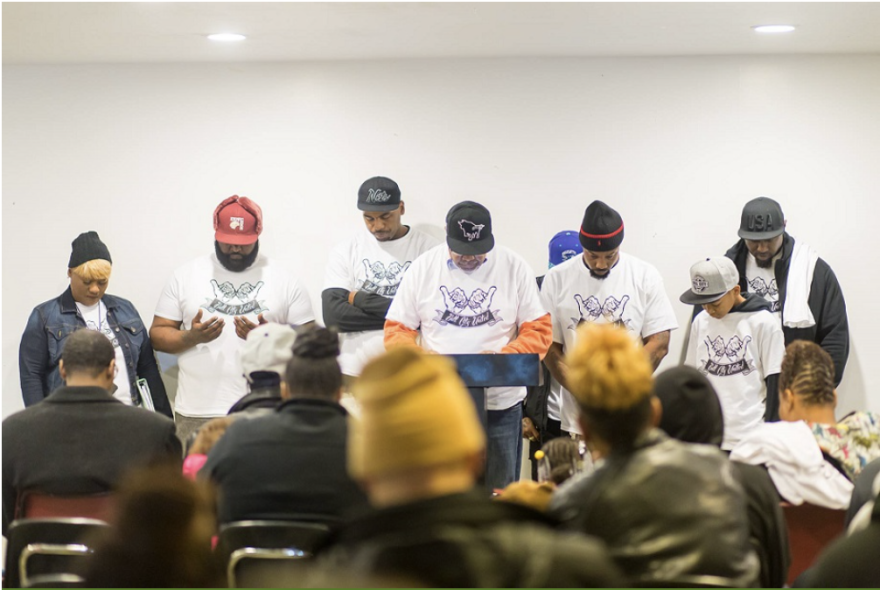As New Hanover county tries to deal with the problem of community violence, advocates and officials are turning to Bull City United (BCU), a program out of Durham County. Facing its own community violence issues, New Hanover county’s manager Chris Coudriet turned to BCU as a framework for his plan to handle the issue, in large part based on suggestions from Judge J. Corpening.
BCU’s mission is simple on paper: change community norms surrounding gun violence and help intervene in conflict. The program detects potentially violent conflicts, treats individuals with the highest risk, and changes community outlook and norms about gun violence.
The initiative initially started with two adjacent areas, based on 2010 census data, census tracts 13.01 and 14.00 — covering the areas around Hillside and Grant parks, identified as having problems with community violence. BCU then expanded to an additional four tracts, 13.04, 17.09, 23.00, and 11.00.
In July 2021, BCU mediated a total of 88 potentially violent incidents. In August they mediated a total of 95 and in September, a total of 92, in four of the six census tracts they operate in.

Funding
Since 2016, Durham county has spent more and more money each year on the program, totaling $1,084,487.04 to date. In the first quarter of fiscal year 2021-2022, $214,790.33 was spent.
The City of Durham only started contributing in 2020 but has already spent considerably more this year compared to last year. In the 20-21 fiscal year, the city spent $15,683.36. In Q1 of the 21-22 year, it spent $64,042.16.
BCU is comprised of city and county-funded positions, with no overlap between the two. It’s divided into two sections: manager, and supervisor. Under the manager, there’s a Violence Interrupter and Outreach worker. All three are city-funded positions. Under the supervisor are also Violence Interrupters and Outreach Workers, but these positions are both city and county-funded.
The program is still growing — BCU aims to fill all 18 of its planned positions by the end of the current fiscal year, June 2022.
The project could get a financial boost above and beyond local funding, too. The Project Funding (CPF) request for $250,000 for the BCU was selected for submission to the House Appropriations Committee to be considered for Fiscal Year 2022 for federal funding.
New Hanover County's version will include a Director, Business/Data Analyst, three Mediators, three Outreach Workers, and one Supervisor. Costs will include salaries, benefits, equipment, and training. Funding for the first three years will come from American Rescue Plan Act money, the fourth year of funding will come from tax revenue. The county aims to provide a total of $2,618,784 over the next four years.
- FY22 - $372,873
- FY23 - $723,035
- FY24 - $748,342
- FY25 - $774,534
BCU works alongside other programs
Violence Interrupters and Outreach Workers respond to every shooting. They work to prevent retaliation, mediating ongoing conflicts to keep them “cool.” In the process, they develop relationships and organize with the community. The goal is not only to physically intervene in conflict, but change community behaviors on a larger scale.
BCU isn’t the only organization helping with community intervention and providing support services. Project BUILD and My Brother’s Keeper (MBK) are both County funded projects that do similar work.
Project BUILD (Building Lifting Impacting Lives Daily) is a gang prevention and intervention program that offers case management and intensive services to youth ages 14-21 who are at high risk of gang involvement. Outreach workers work one-on-one with the youth to help connect them to school and employment and help them make positive decisions.
MBK is based on former President Barack Obama’s call to action to ensure the nation's young men of color have equal access to opportunities to achieve their full potential. They provide sustained interventions to improve life outcomes for young men of color to lead them on a path of success and stay on it.
Similar programs
Bull City United is modeled after Cure Violence, which was started in Chicago, originally under the program name Cease Fire in 2000; the program has struggled with consistent funding in Chicago, but has also expanded to nearly two dozen other U.S. cities, as well as international locations.
In North Carolina, the City of Greensboro just voted to extend its Cure Violence program. The city’s initial investment was $500,000 in October of 2019 following a series of gun-related deaths. The total homicides for that year was a record-breaking 45.
The two neighborhoods being targeted are the MLK Corridor and the Smith Homes neighborhoods in East Greensboro. They were targeted because those neighborhoods had previously been the source of a disproportionate amount of gun violence in the city. The narrow focus remains a source of concern for city council members who say it limits funds for crime-fighting initiatives in other neighborhoods.
The most recent extension of the program cost $400,000.
Below: Q1 FY2022 report for Bull City United and Funding breakdown for recent programs in New Hanover County's community violence initiatives.
BCU Quarterly Presentation by Ben Schachtman on Scribd


